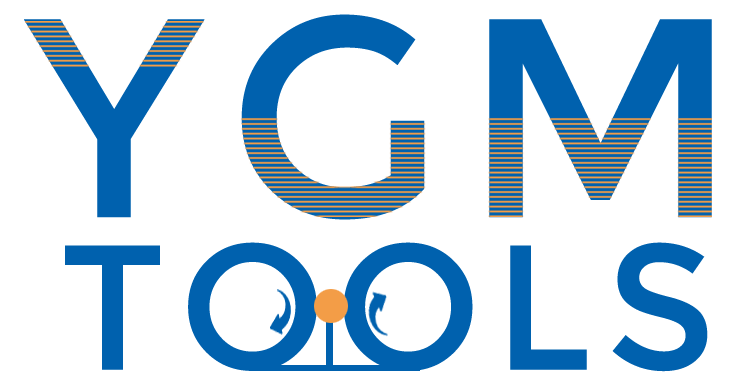
-
 Afrikaans
Afrikaans -
 Albanian
Albanian -
 Amharic
Amharic -
 Arabic
Arabic -
 Armenian
Armenian -
 Azerbaijani
Azerbaijani -
 Basque
Basque -
 Belarusian
Belarusian -
 Bengali
Bengali -
 Bosnian
Bosnian -
 Bulgarian
Bulgarian -
 Catalan
Catalan -
 Cebuano
Cebuano -
 Corsican
Corsican -
 Croatian
Croatian -
 Czech
Czech -
 Danish
Danish -
 Dutch
Dutch -
 English
English -
 Esperanto
Esperanto -
 Estonian
Estonian -
 Finnish
Finnish -
 French
French -
 Frisian
Frisian -
 Galician
Galician -
 Georgian
Georgian -
 German
German -
 Greek
Greek -
 Gujarati
Gujarati -
 Haitian Creole
Haitian Creole -
 hausa
hausa -
 hawaiian
hawaiian -
 Hebrew
Hebrew -
 Hindi
Hindi -
 Miao
Miao -
 Hungarian
Hungarian -
 Icelandic
Icelandic -
 igbo
igbo -
 Indonesian
Indonesian -
 irish
irish -
 Italian
Italian -
 Japanese
Japanese -
 Javanese
Javanese -
 Kannada
Kannada -
 kazakh
kazakh -
 Khmer
Khmer -
 Rwandese
Rwandese -
 Korean
Korean -
 Kurdish
Kurdish -
 Kyrgyz
Kyrgyz -
 Lao
Lao -
 Latin
Latin -
 Latvian
Latvian -
 Lithuanian
Lithuanian -
 Luxembourgish
Luxembourgish -
 Macedonian
Macedonian -
 Malgashi
Malgashi -
 Malay
Malay -
 Malayalam
Malayalam -
 Maltese
Maltese -
 Maori
Maori -
 Marathi
Marathi -
 Mongolian
Mongolian -
 Myanmar
Myanmar -
 Nepali
Nepali -
 Norwegian
Norwegian -
 Norwegian
Norwegian -
 Occitan
Occitan -
 Pashto
Pashto -
 Persian
Persian -
 Polish
Polish -
 Portuguese
Portuguese -
 Punjabi
Punjabi -
 Romanian
Romanian -
 Russian
Russian -
 Samoan
Samoan -
 Scottish Gaelic
Scottish Gaelic -
 Serbian
Serbian -
 Sesotho
Sesotho -
 Shona
Shona -
 Sindhi
Sindhi -
 Sinhala
Sinhala -
 Slovak
Slovak -
 Slovenian
Slovenian -
 Somali
Somali -
 Spanish
Spanish -
 Sundanese
Sundanese -
 Swahili
Swahili -
 Swedish
Swedish -
 Tagalog
Tagalog -
 Tajik
Tajik -
 Tamil
Tamil -
 Tatar
Tatar -
 Telugu
Telugu -
 Thai
Thai -
 Turkish
Turkish -
 Turkmen
Turkmen -
 Ukrainian
Ukrainian -
 Urdu
Urdu -
 Uighur
Uighur -
 Uzbek
Uzbek -
 Vietnamese
Vietnamese -
 Welsh
Welsh -
 Bantu
Bantu -
 Yiddish
Yiddish -
 Yoruba
Yoruba -
 Zulu
Zulu
types of thread rolling machine factories
Types of Thread Rolling Machine Factories
Thread rolling is a crucial manufacturing process used to create threads on a variety of components, ensuring precision and improving the mechanical properties of the finished products. This method is designed to replace traditional cutting processes, offering enhanced productivity and less material waste. With the growing demand for threaded products across various industries, thread rolling machine factories have become increasingly significant. In this article, we will explore the different types of thread rolling machine factories and their respective roles in the manufacturing landscape.
1. Automated Thread Rolling Machine Factories
Automated thread rolling machine factories are equipped with advanced technology that enables high-volume production of threaded components. These factories utilize CNC (Computer Numerical Control) machines, which allow for accurate and repeatable thread rolling. The automation of the process minimizes the need for manual intervention, leading to increased efficiency and reduced labor costs. Such factories often cater to industries that require large quantities of standardized threaded products, such as automotive and aerospace sectors.
2. Custom Thread Rolling Machine Factories
While mass production is essential, some applications require custom-threaded components with specific dimensions or characteristics. Custom thread rolling machine factories focus on producing unique designs tailored to individual customer specifications. Such factories invest in flexible machinery that can be easily adjusted for different thread profiles or sizes. This adaptability often attracts clients from niche markets, including medical devices, specialized machinery, and energy sectors, where precision is paramount.
3. Heavy-Duty Thread Rolling Machine Factories
Heavy-duty thread rolling machine factories specialize in producing large, robust threaded components typically used in construction and industrial applications. These factories employ heavy-duty machines designed to handle tough materials, such as high-strength steel or titanium. The processes in these factories are often slower than their automated counterparts, but they focus on durability and strength. As infrastructure projects continue to grow globally, the demand for heavy-duty threaded products remains continuous.
types of thread rolling machine factories

4. Vertical and Horizontal Thread Rolling Machine Factories
The configuration of rolling machines can significantly influence the production process. Vertical thread rolling machine factories utilize machines where the workpiece is positioned vertically. This configuration allows for better chip removal and improved visibility for the operator. Conversely, horizontal thread rolling machine factories use machines with a horizontal setup, which is often more suitable for longer parts and higher production volumes. Each setup has its advantages, and factories typically choose based on the types of products they manufacture.
5. Specialty Thread Rolling Machine Factories
Some thread rolling machine factories focus on specific applications or industries, developing specialized machines tailored to unique products. For example, factories might produce machines specifically for the food processing or pharmaceutical industries, where hygiene and precision are crucial. These specialty factories often collaborate closely with industry experts to create equipment that meets stringent regulatory requirements, ensuring that products are safe and effective.
6. Service and Maintenance-Oriented Factories
Finally, alongside those that manufacture thread rolling machines, there are factories dedicated to the service and maintenance of these machines. These factories play a critical role in ensuring the longevity and efficiency of thread rolling operations. They provide repair services, spare parts, and regular maintenance, ensuring that manufacturing lines remain operational without significant downtime.
Conclusion
Thread rolling machine factories come in various types, each catering to different industry needs and production requirements. From high-volume automated setups to specialized custom factories, the diversity in manufacturing capabilities reflects the growing demand for precision-engineered threaded components. As technology advances, we can expect these factories to evolve, adopting innovative methods that enhance efficiency, reduce costs, and improve product quality. The future of thread rolling is bright, promising continued growth and adaptation to meet the challenges of modern manufacturing.
